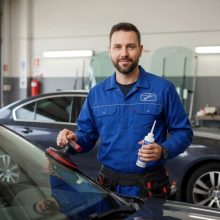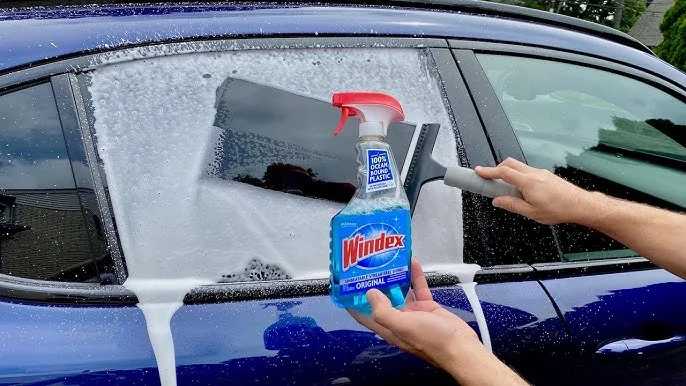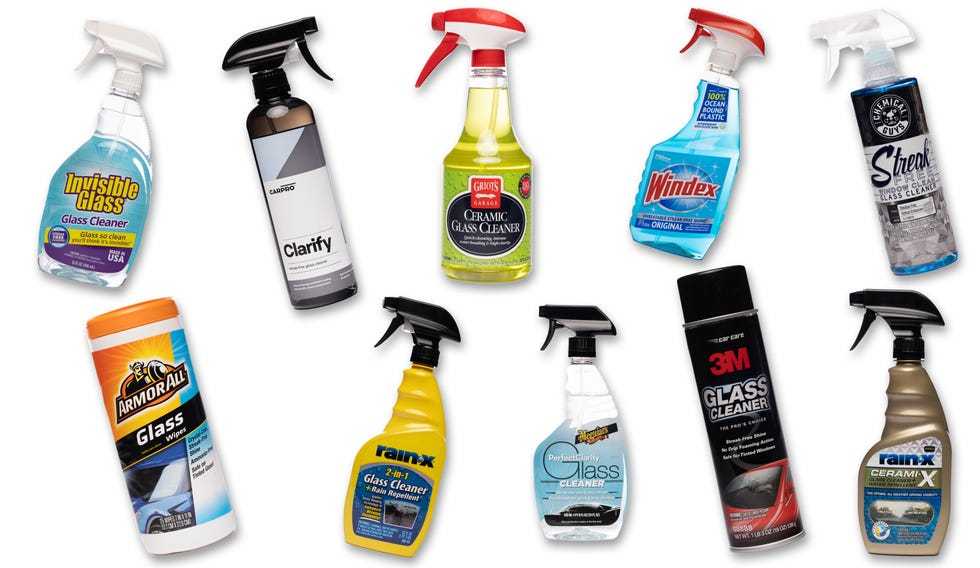Yes, glass coating for cars is worth it if you’re looking for long-lasting protection and a stunning glossy finish. It enhances your vehicle’s appearance, provides superior protection against scratches, dirt, and UV damage, and makes cleaning easier. However, it requires an initial investment and proper maintenance to maximize its benefits.
A glass coating can be a game-changer for car owners seeking to preserve their vehicle’s look and value over time. It offers a durable layer that shields your car from environmental damage and simplifies upkeep. But whether it’s worth the cost depends on your driving habits, climate, and how much you want to invest in maintaining your car’s exterior.
If you’re contemplating whether a glass coating is a smart choice for your vehicle, consider your priorities for appearance and protection. This innovative treatment might just give your car that extra edge of shine and resilience you’ve been craving, making it a worthwhile investment for many owners.
Is Glass Coating for Cars Worth It? An In-Depth Look
What Is a Glass Coating for Cars?
A glass coating, also called ceramic coating, is a liquid polymer applied to a car’s exterior surface. It forms a protective layer that bonds with the paint, creating a barrier against dirt, water, and scratches. This coating is designed to make your car easier to clean and maintain over time.
How Does Glass Coating Work?
The coating contains tiny molecules that fill in the microscopic pores of the car’s paint. By doing so, it provides a smooth surface that repels water and reduces the chance of dirt sticking. Once applied, it creates a glossy finish that enhances the car’s appearance. The process involves cleaning the car thoroughly, applying the coating evenly, and curing it for a specified time.
Benefits of Glass Coating
- Enhanced Protection: The coating shields your vehicle from UV damage, chemical stains, and minor scratches. It acts as a barrier against harsh environmental elements like acid rain and bird droppings.
- Ease of Cleaning: Dirt and water slide off more easily, reducing wash time and effort. You need fewer products to keep your car pristine.
- Long-Lasting Shine: The shiny, smooth surface remains vibrant for years, keeping your car looking new longer. It also helps preserve the paint’s original color and finish.
- Resistant to Water and Contaminants: Water beads up and rolls off the surface, taking dirt and grime with it. This prevents water spots and mineral deposits.
Costs Involved
Applying a glass coating can range from two hundred to over a thousand dollars, depending on the vehicle size and quality of the product. Professional application usually costs more but ensures proper coverage and curing. DIY kits are available but may not provide the same durability or finish as professional work.
Durability and Longevity
The lifespan of a glass coating depends on factors like quality, application, and maintenance. On average, high-quality coatings last between two and five years. Proper washing techniques and minimal exposure to abrasive cleaners help prolong the effectiveness of the coating.
Is Glass Coating Worth the Investment?
Whether a glass coating is worth it depends on your lifestyle, budget, and car usage. If you want to protect your vehicle’s paint and reduce maintenance time, investing in a good coating pays off over time. However, if you prefer a low-cost, low-maintenance option or frequently trade cars, it might not be necessary.
Common Myths About Glass Coatings
Myth 1: Glass Coatings Completely Prevent Scratches
While they offer some scratch resistance, glass coatings do not make your car scratch-proof. Regular care is still needed to prevent damage.
Myth 2: Coatings Last Forever
No coating lasts indefinitely. Over time, environmental exposure and washing will diminish its protective properties, requiring reapplication.
Myth 3: DIY Kits Are Just as Good as Professionals
DIY kits can be tempting, but professional applications typically provide better coverage, longer-lasting results, and a more polished finish.
Factors to Consider Before Applying a Glass Coating
- Type of Vehicle: Newer cars with fine paint finishes benefit most from coating.
- Budget: Higher quality coatings come at a higher price but offer better durability.
- Car Usage: If you drive often in harsh environments or expect frequent exposure to dirt and debris, a coating can be advantageous.
- Maintenance Routine: Regular washing with gentle products extends the coating’s life.
Steps for Proper Application
Applying a glass coating involves several critical steps:
- Thoroughly wash and dry the vehicle.
- Remove any existing wax, polish, or contaminants.
- Apply the coating in a dust-free environment using proper tools.
- Allow proper curing time as specified by the product manufacturer.
- Finish with a light buff to enhance shine and smoothness.
Following these steps ensures the coating bonds well and lasts longer.
Maintenance Tips for Longevity
To keep your coating in top shape:
- Use pH-neutral car shampoos for washing.
- Avoid abrasive brushes or sponges.
- Dry your car with a microfiber cloth to prevent water spots.
- Regularly inspect the surface for signs of wear or damage.
- Avoid parking under trees or near construction sites where debris can settle.
Related Topics
Paint Protection Films (PPF)
This is a clear film applied over the paint to guard against scratches, chips, and stains. Often used in combination with glass coatings for maximum protection.
Waxing Versus Glass Coating
Wax provides a temporary shine and some protection but requires frequent reapplication. Glass coatings offer longer-lasting protection and superior water repellency.
Environmental Impact of Glass Coatings
Many coatings are environmentally friendly, with durable formulations reducing the need for frequent washing. However, always check product labels for eco-friendly options.
Choosing the Right Brand and Product
Research customer reviews, product specifications, and warranty options. Popular brands often come with guarantees on durability and protection.
Final Thoughts
Deciding if glass coating for your car is worth it depends on what you value most—protection, appearance, or ease of maintenance. While a higher upfront cost exists, the benefits often justify the expense for many car owners. Regular maintenance and proper application are key to maximizing its lifespan and performance.
Ceramic Coating Myths, Lies, and Misconceptions
Frequently Asked Questions
How durable is a glass coating on a vehicle’s surface?
Glass coatings typically last between two to five years, depending on the quality of the product and how well you maintain your car. Regular washing, avoiding harsh chemicals, and parking in covered areas can extend the coating’s lifespan. Proper maintenance ensures your vehicle remains protected and its appearance stays glossy over time.
Does applying a glass coating significantly improve the car’s resistance to environmental damage?
Yes, a high-quality glass coating provides a strong barrier against contaminants such as dirt, bird droppings, and road salts. It also offers enhanced resistance to minor scratches and UV rays, which helps preserve the vehicle’s paint and finish. This protection keeps your car looking newer, longer.
Is the cost of applying a glass coating justified by its benefits?
The upfront expense might seem considerable, but the benefits often outweigh the costs. Glass coatings reduce the need for frequent washes, protect against damage, and help maintain resale value. If you want to keep your vehicle looking pristine with less maintenance effort, investing in a glass coating can be a worthwhile choice.
How does a glass coating affect the ease of cleaning your vehicle?
A glass coating creates a smooth, hydrophobic surface that repels water and dirt. This makes washing your vehicle easier because contaminants slide off more easily, reducing the effort and time needed for cleaning. As a result, your car stays cleaner between washes and maintains a fresh appearance longer.
Can a novice apply a glass coating effectively, or should I seek professional help?
While some DIY kits are available, achieving optimal results requires careful surface preparation and proper application techniques. For most car owners, consulting a professional ensures the coating is applied correctly, maximizing its effectiveness and durability. A professional application also minimizes the risk of streaks or missed spots.
Final Thoughts
Glass coating for cars offers excellent protection against scratches, dirt, and UV rays. It makes cleaning easier and enhances the vehicle’s shine. While it involves an upfront cost, the long-term benefits often outweigh the expense.
In conclusion, is glass coating for cars worth it? For many car owners, the durability and ease of maintenance make it a valuable investment. It provides a lasting barrier, preserving the car’s appearance and resale value.



